Bearing Stories
Tania Tan
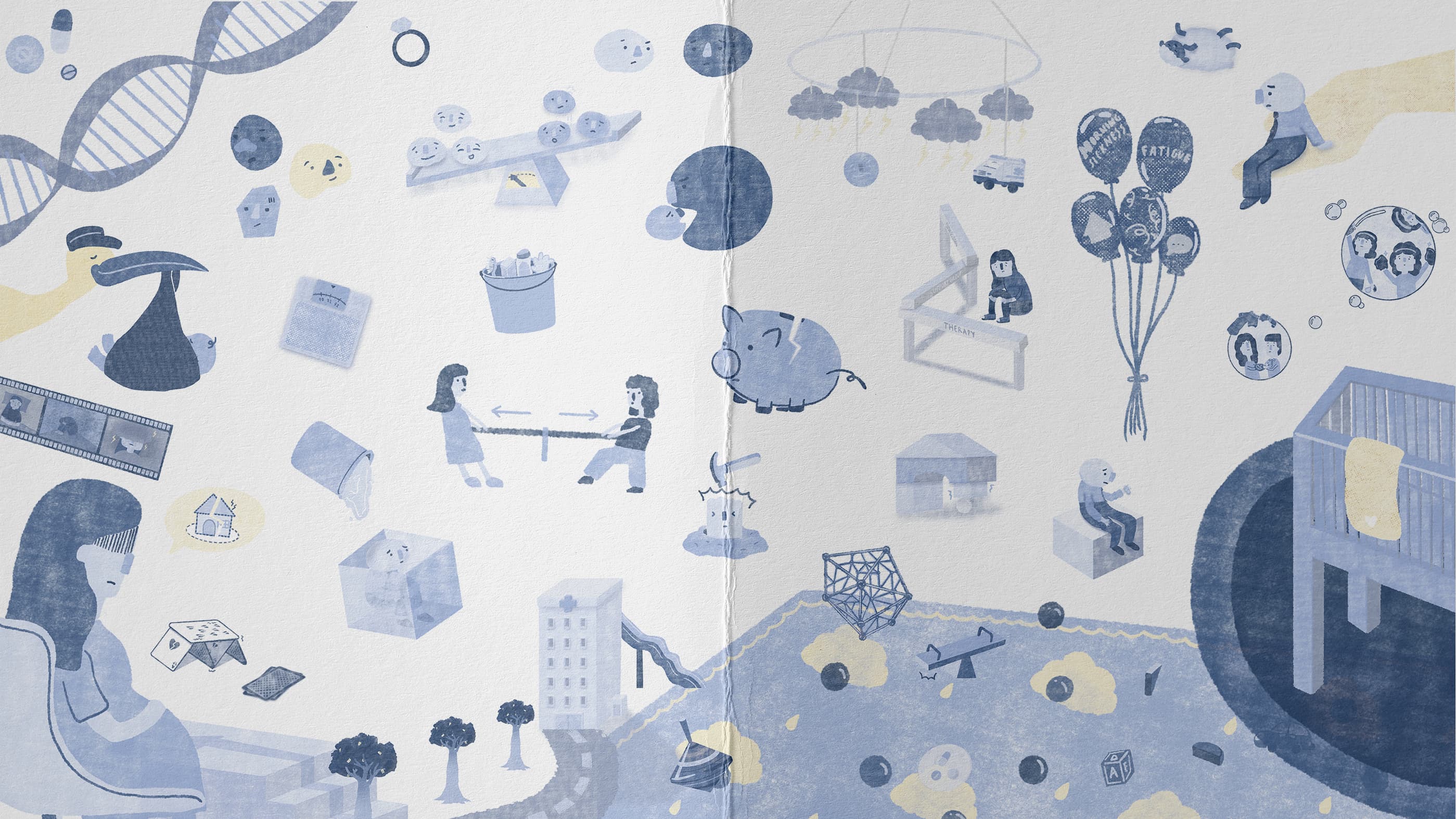
Bearing Stories explores the experiences of women dealing with postpartum depression (PPD) in non-clinical and familiar settings in Singapore. While there are few resources targeting fathers, this project specifically aims to enhance the communication skills, empathy, and understanding of first time fathers toward their partners experiencing postpartum depression. Through the insights Tania gathered from interviews and comprehensive research, her project seeks to shed light and help couples navigate through the complexities of PPD.
You briefly mentioned that a lot of people don't really know much about PPD. So what do you think of Singaporeans' perception towards PPD? And do you think there are enough and adequate resources for those with PPD?
I think there is definitely societal stigma against this topic and there's a taboo where people don't really want to talk about it. It's partially because it's a very tough experience for individuals. It's also often a case-by-case scenario, so there won't be a similar experience for everyone. It's very tough to talk about it, especially when the mom is very high strung and hormonal.
Apparently, the group that is quite susceptible to postpartum depression is first time parents. I tried to put myself in their shoes and be like, okay, first time parents don't know how to do things, need guidance from their parents. They're struggling a lot with their lives and additionally have to bring up a new child. I really felt for them.
Could you share about what you are doing with your project, and how you're trying to address your target group through your work?
My first deliverable is an introductory wall to explain what visual
narrative is.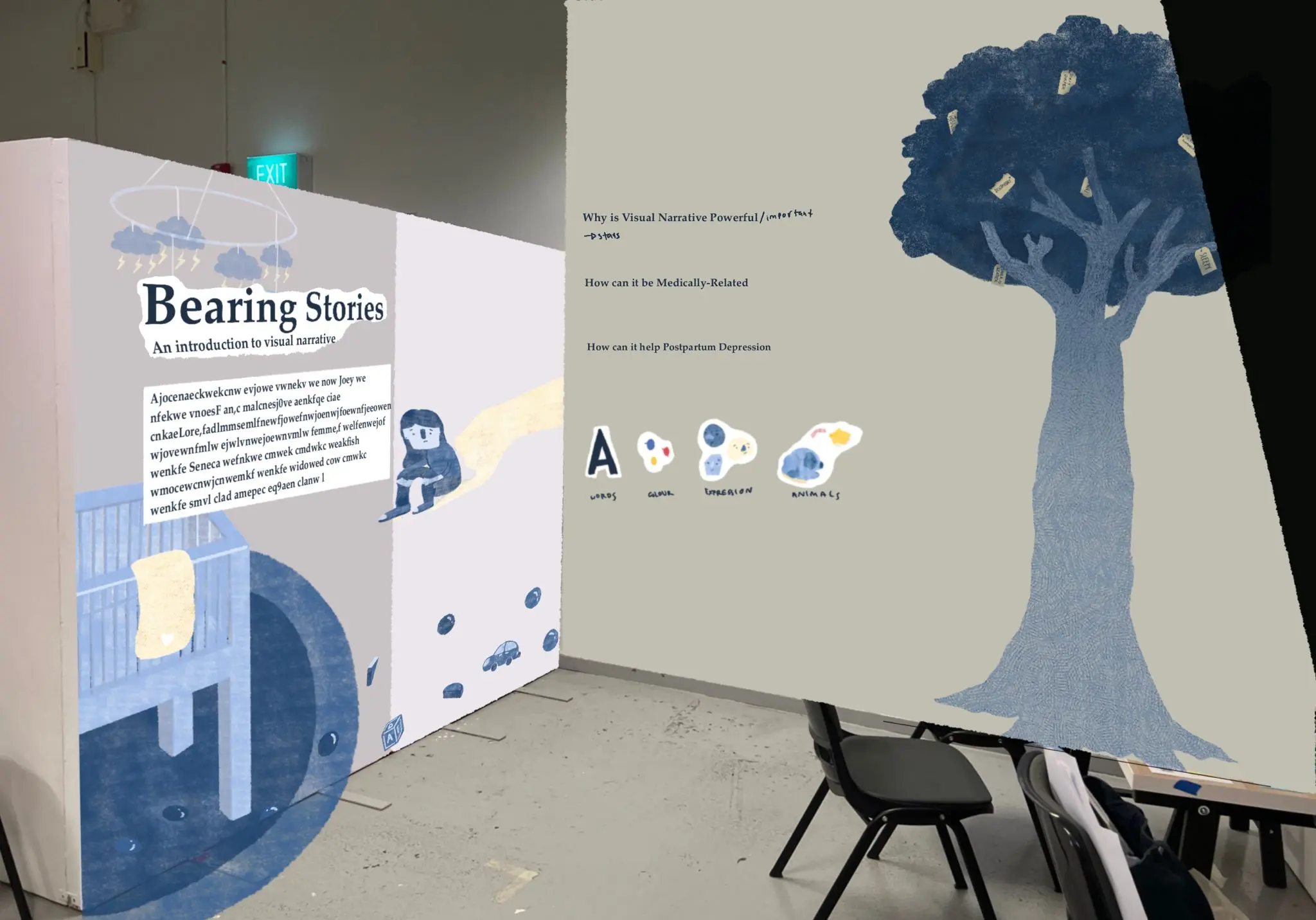 It’s giving exhibit — but not really.
It’s giving exhibit — but not really.
The second one is a book that’s broken down into different parts.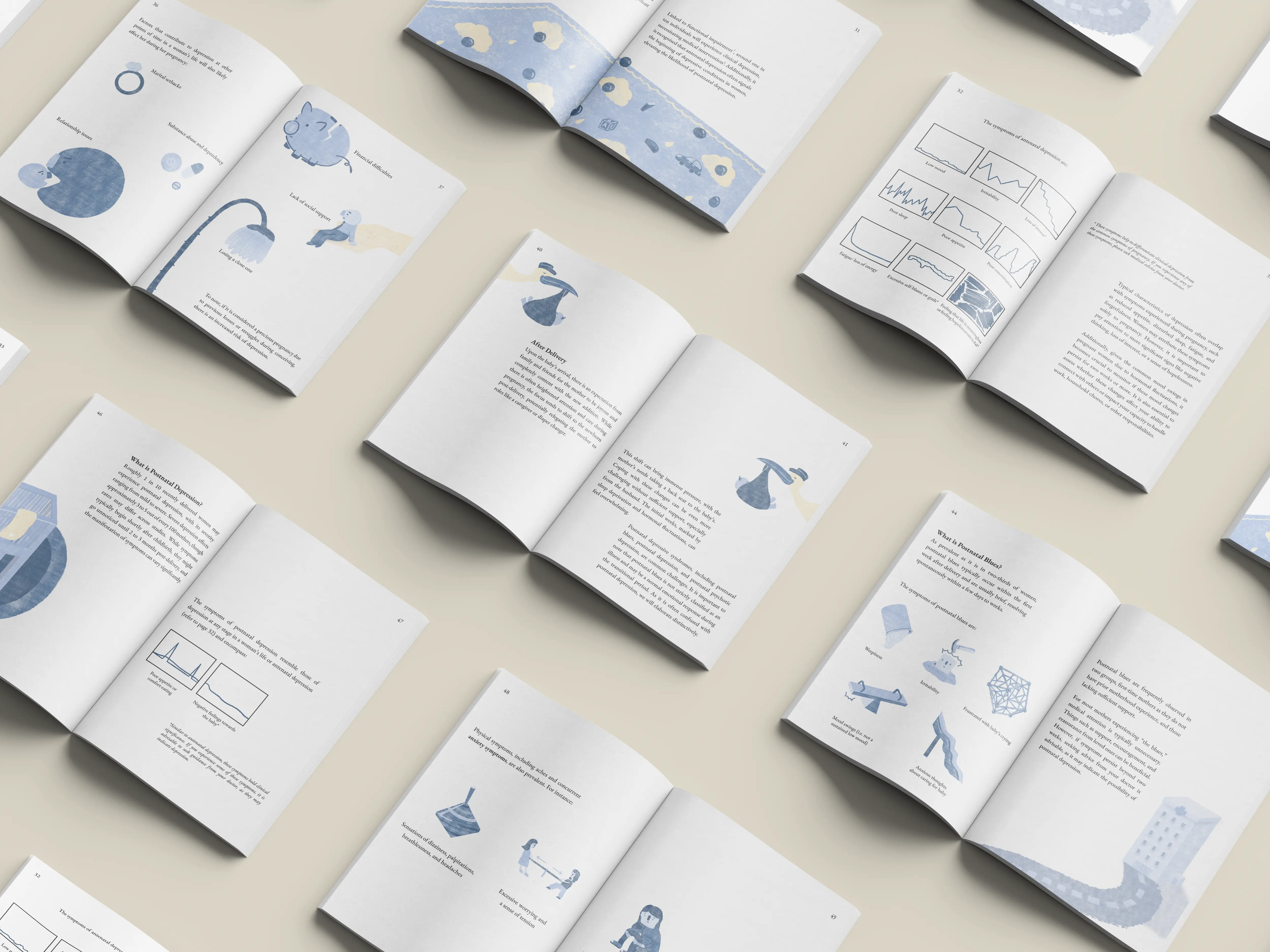 It starts by
introducing this project and explaining what it is about. It addresses stakeholders — the main one being first time
parents. I also interviewed and talked to medical professionals from
KK Hospital, and a visual narrative designer. Since I'm using storytelling as an approach to
help with this entire project, I wanted to share with people how storytelling can help with this
taboo topic.
It starts by
introducing this project and explaining what it is about. It addresses stakeholders — the main one being first time
parents. I also interviewed and talked to medical professionals from
KK Hospital, and a visual narrative designer. Since I'm using storytelling as an approach to
help with this entire project, I wanted to share with people how storytelling can help with this
taboo topic.
I am also including stories that I’ve gathered from interviewing two moms. Finally, I’ll be adding resources because I think in the KK book, they kind of did the same thing with all the helplines and support groups. I thought it was really helpful. This deliverable is kind of like a guidebook. More for the dads to understand what postpartum depression is.
The last is a children’s book, but the book acts as a gentle reminder for dads that
these are existing issues that can easily go unnoticed by both partners.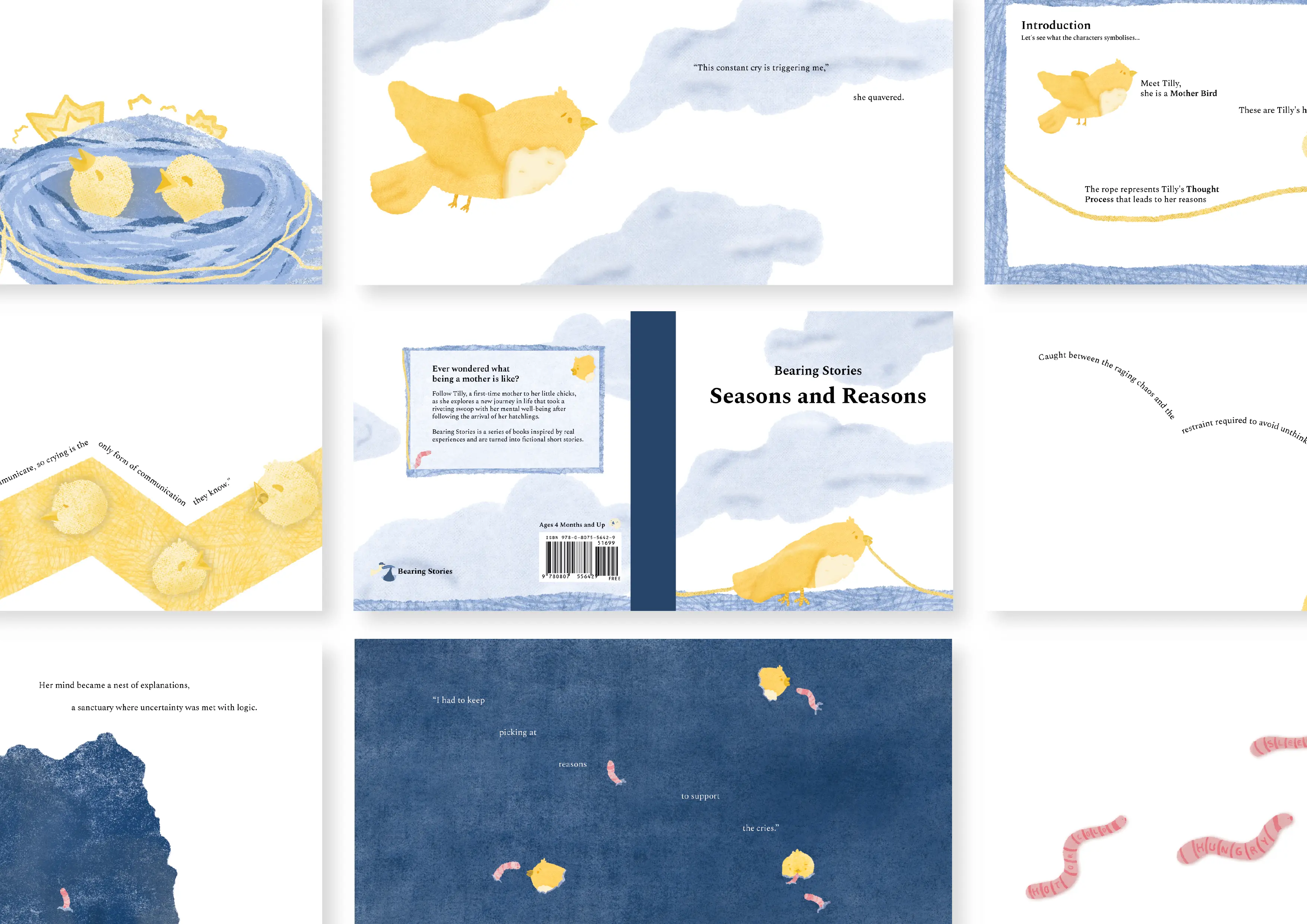 It’s to promote quality
time by having bedtime stories, but as the dads progress into the book, it’s like a simplified and
shortened version of interviews with PPD mothers.
It’s to promote quality
time by having bedtime stories, but as the dads progress into the book, it’s like a simplified and
shortened version of interviews with PPD mothers.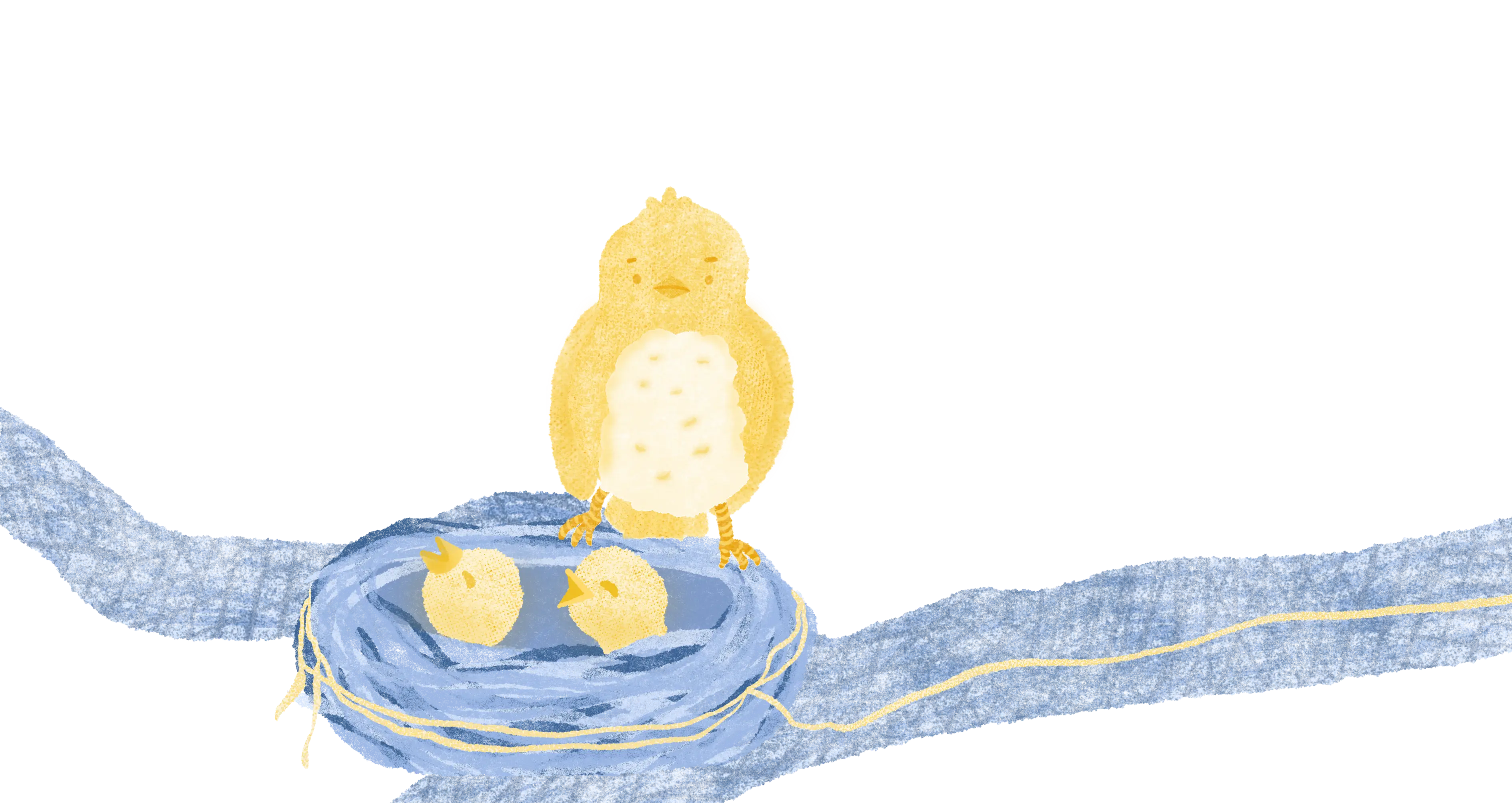
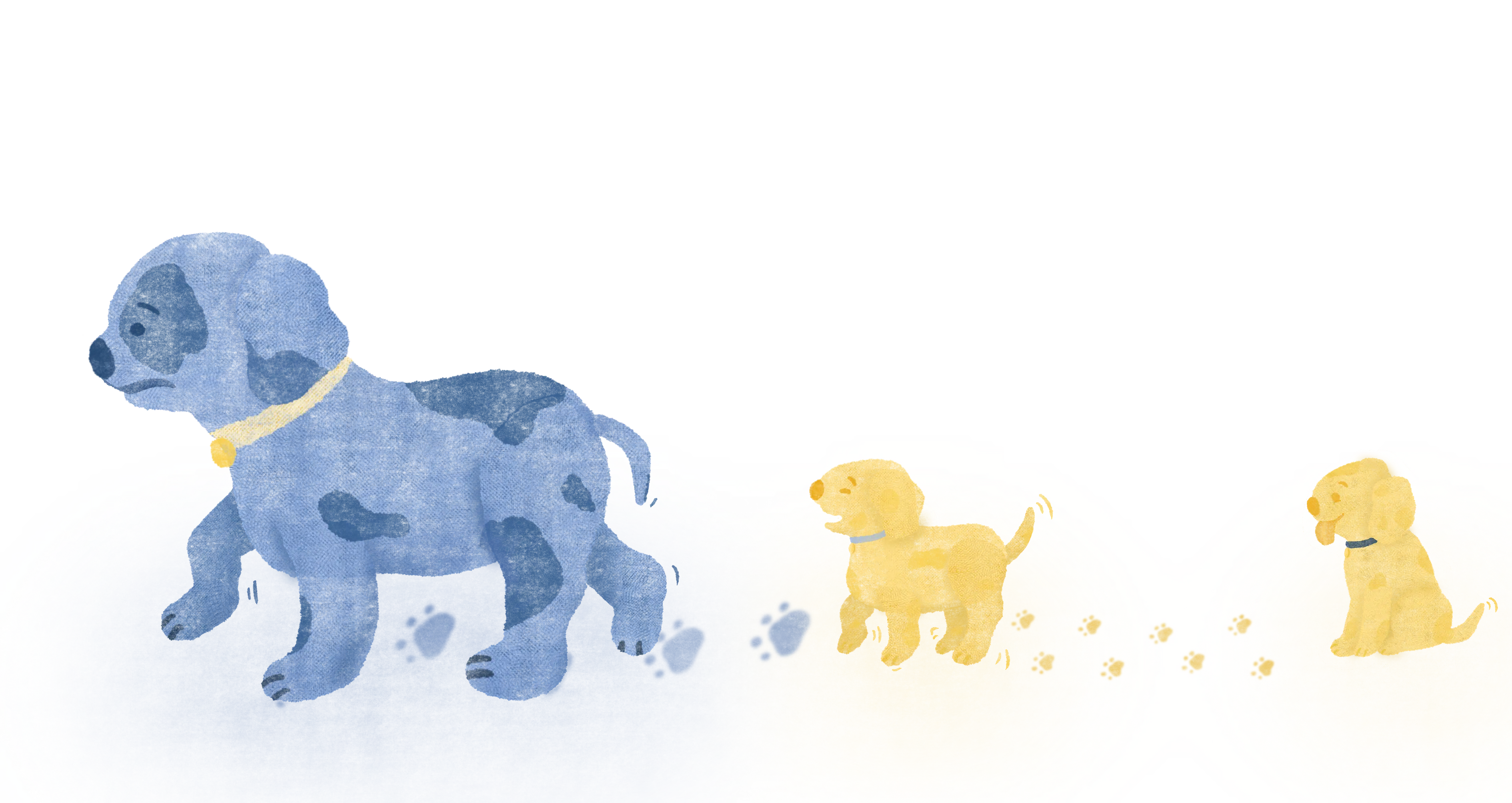 It’s just to show them that these problems exist,
and the end goal is to have empathy and understanding, maybe even be more aware of surroundings,
check in on their partner, and provide a platform for open conversations.
It’s just to show them that these problems exist,
and the end goal is to have empathy and understanding, maybe even be more aware of surroundings,
check in on their partner, and provide a platform for open conversations.
There are a lot of themes that your project addresses, I believe. Parental roles and responsibilities, marriage and partner dynamics. As well as mental health and our perceptions of them, and even healthcare resources and manpower. How are you navigating through these themes as a young female adult? Because, from what I'm hearing, it's very heavy.
I think especially because I know these two mums personally, it felt a bit different for me. In the past, I'll just be having fun and all with them. But now, after hearing their stories, I'm like, damn, they actually went through something. It made me take a step back, honestly. On the surface, everyone seems okay. But you just don't know how much they went through. And it sounds very cliche, but the stories that they tell me, it kind of scares me a little. I'm just very thankful that my mum didn't suffer from it. It just makes me feel very bad for those out there.
See Nusantara Bergaul, and Seeing Glass Children